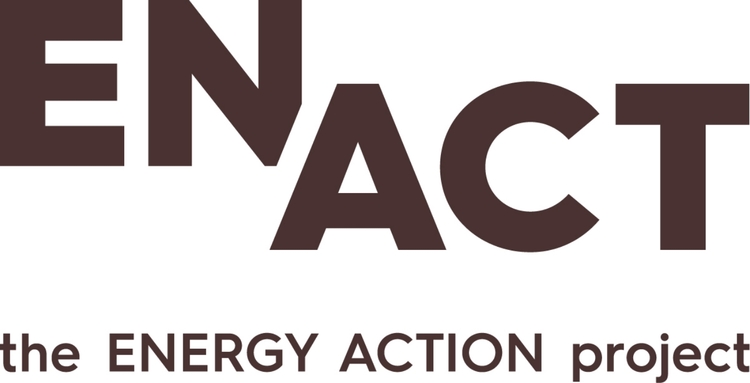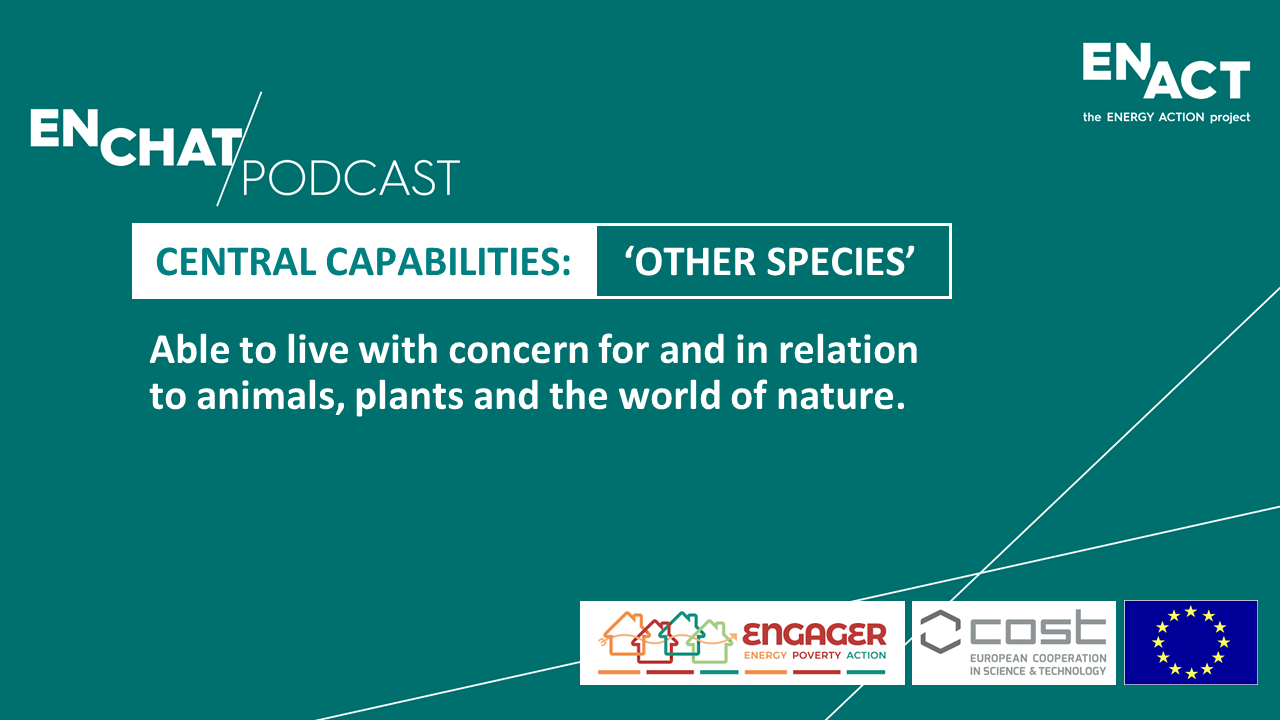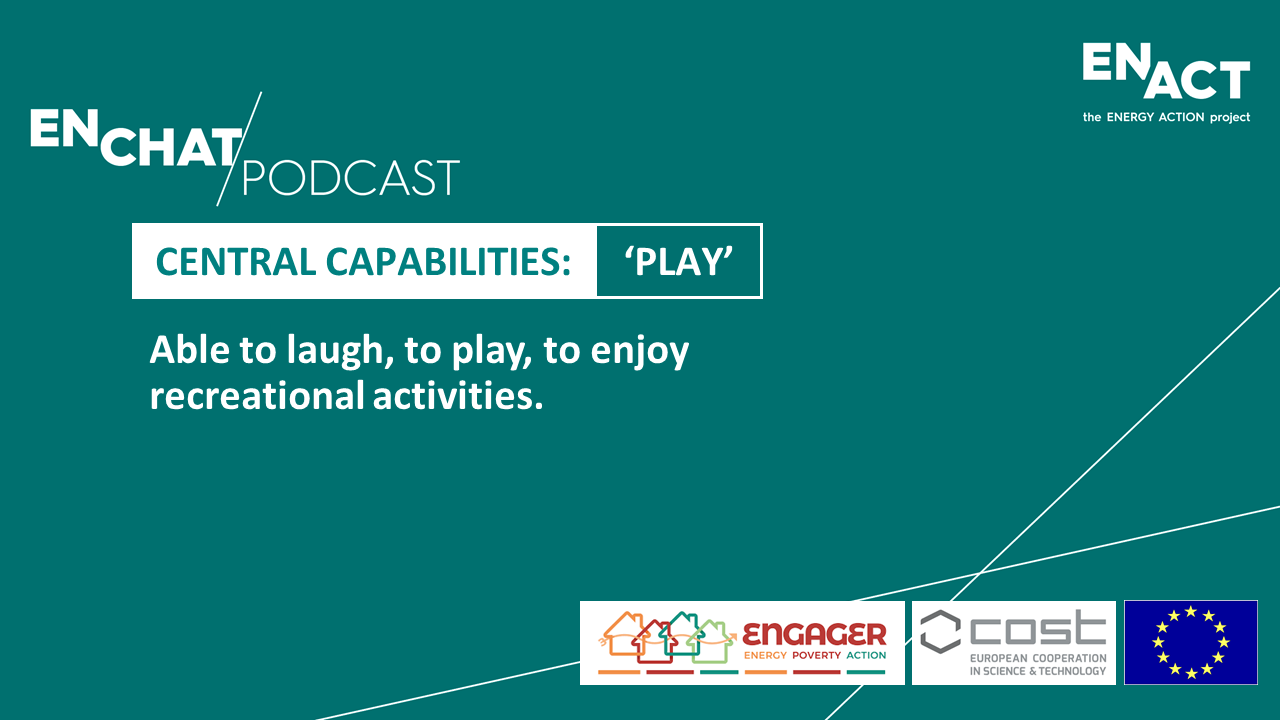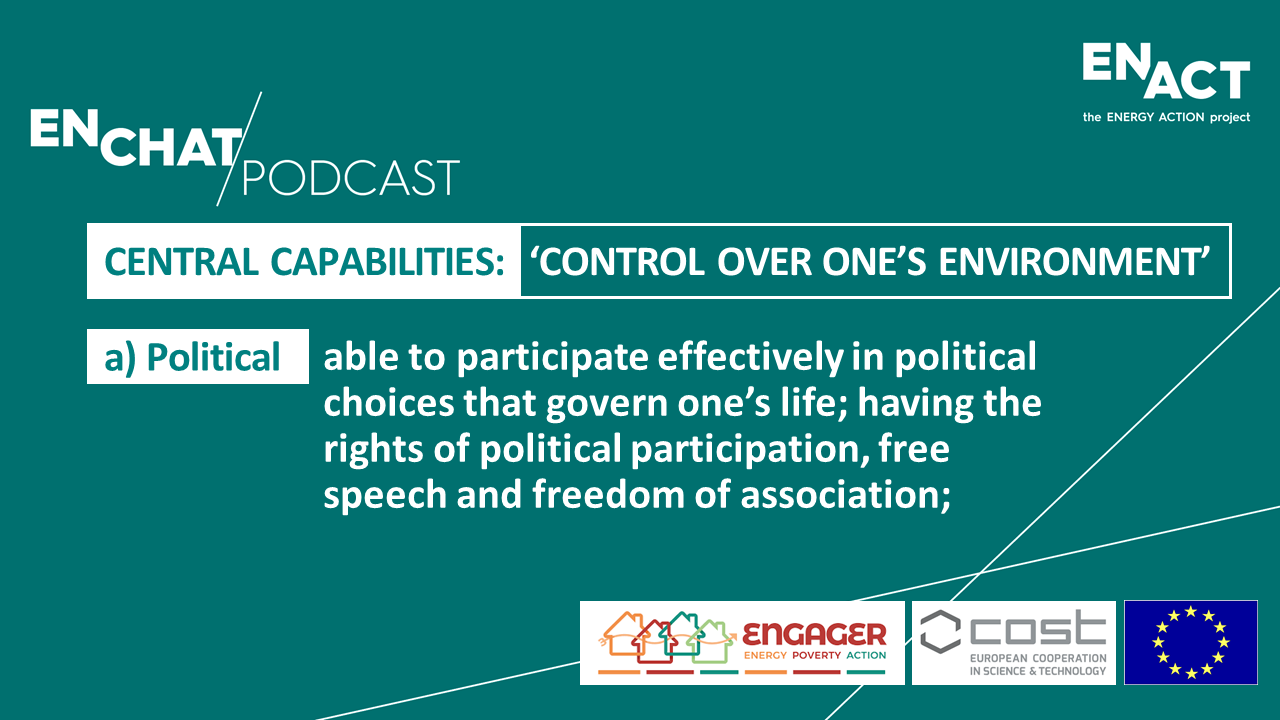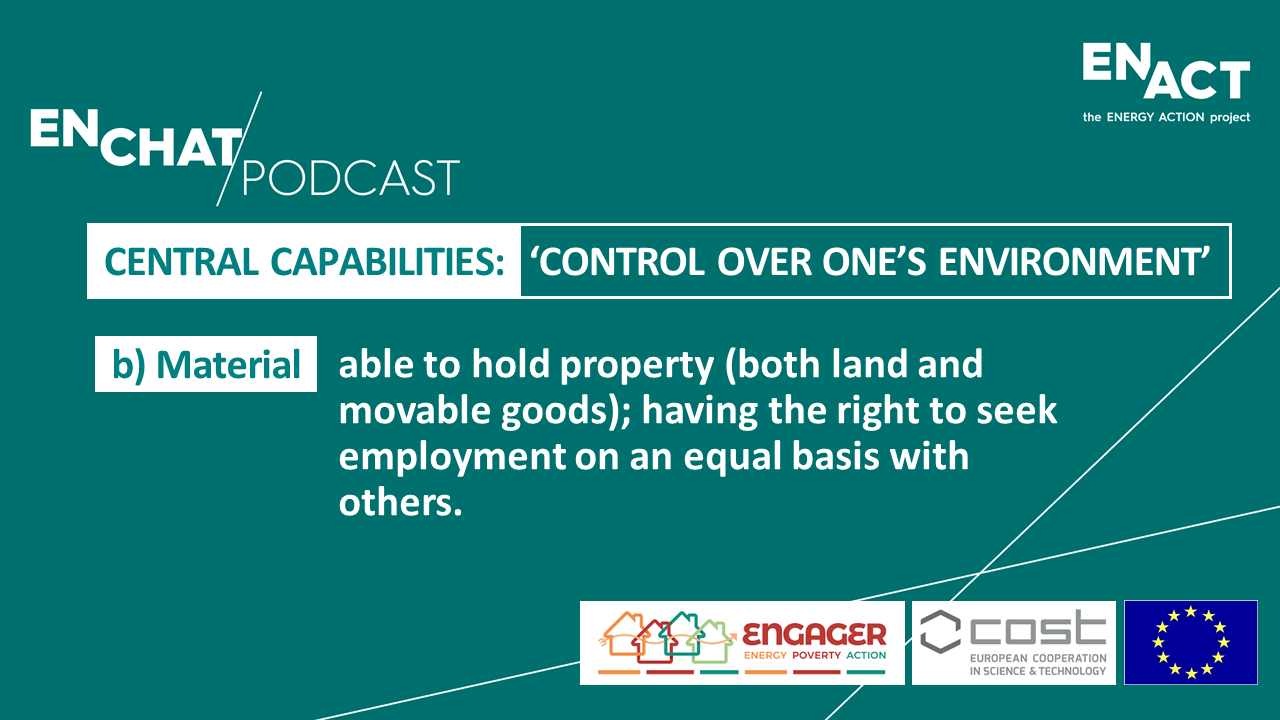Energy access and the right to a dignified life
This podcast examines social dimensions of energy deprivation, with in-depth exploration of the concepts of ‘energy justice’ and the ‘capabilities approach’. In much existing human rights law, the preamble specifically mentions the goal of enabling people to have ‘a dignified life.’ This topic sparked a great deal of interest at the COST ENGAGER event entitled “Co-Creating the Right to Energy from Theory to Practice.” Listen in to hear from Dr. Katrin Grossman, Jade Munroe, Irene Pijuan-Gonzalez and Dr. Neil Simcock.
“If you look at any charter for human rights or national constitutions, the first paragraph usually talks about dignity as the basis for the legal frameworks.”
Dr. Katrin Großmann, University of Applied Sciences Erfurt, Germany
Sneaking out after dark to collect water from a public fountain. Waking up to icicles on your bed linens in student housing. Feeling too embarrassed, as an adolescent, to invite friends to your cold, dark home. Being berated by an energy company employee who could never fathom the hoops you’ve jumped through to clear an overdue bill. Seeing social workers roll their eyes while you explain any or all of the above.
Indignity. Humiliation. Isolation. Anxiety. Depression. All of these are common conditions for people facing energy deprivation, according to La Alianza contra la Pobreza Energética (APE / Alliance Against Energy Poverty) in Spain and Students Achieving Valuable Energy Savings (SAVES), a project spanning seven EU countries.[1] Heaped on top of the known health problems linked to being too cold or too hot at home, the social challenges can undermine people’s ability to manage daily life, destroy relationships and crush self-esteem.
This fourth podcast co-produced with the ENGAGER Cost network examines how truly upholding the right to energy would address the social impacts of energy poverty.
In particular, with the help of Dr. Neil Simcock, John Moores University (UK), we probe the concept of ‘energy justice’, building on tenets that come out of environmental and climate justice. And hear from Irene Gonzalez-Pijuan (APE) about a recent ‘big win’ in Catalonia, achieved by empowering the people who previously felt defeated by energy-related problems.
Moving away from technical topics such as minimum levels of energy supply or boosting energy efficiency of homes, Dr. Simcock also walks us through the ‘capabilities approach’ as it can be applied to energy justice. Initially developed by Amartya Sen[1] and Martha Nussbaum,[2] this concept is concerned with whether society is set up to ensure that all people have the same opportunity to ‘be’ and ‘do’. The ability to ‘be in good health’ or to ‘participate in education’ are examples, which Sen and Nussbaum refer to as ‘functionings’. In turn, ‘capabilities’ is about having the opportunity or the freedom to go ahead and achieve such functionings … if a person so wishes. Core to the capabilities approach is that – from a moral, ethical and justice perspective – equality is less about material goods and certain conditions: what really matters it the capability to be and do. Nussbaum identified a list of ten central capabilities.
For Jade Monroe of the SAVES programme, the degree to which energy poverty is undermining the well-being and achievements of university students is a question that needs more research. Particularly in that students who perform below their potential because of poor housing conditions may end up trapped in career paths with lower incomes.
Across this podcast, academics and advocates make the case for ensuring that all citizens be entitled to adequate energy for a dignified life.
To access the three preceding podcasts in this series, click the links below:
· Energy Access as a Basic Human Right, featuring Marlies Hesselman, University of Groningen, The Netherlands.
· A Policy Framework for the Right to Energy, with Dr. Chian-Woei Shyu, National Chung-Cheng University, Taiwan.
· Making a Legal Case for the Right to Energy, in conversation with David Kabanda, Centre for Food and Adequate Living Right (Uganda).
Full-length blogs are also available on:
· The APE’s research on the impacts of energy poverty children and adolescents.
· The SAVES programme findings and advocacy approaches for university students in energy poverty.
[1] Indian economist who won the Nobel Prize for Economics in 1998. https://en.wikipedia.org/wiki/Amartya_Sen
[2] American philosopher: https://en.wikipedia.org/wiki/Martha_Nussbaum
[1] Bulgaria, Cyprus, Greece, Ireland, Lithuania, Romania and the UK.
